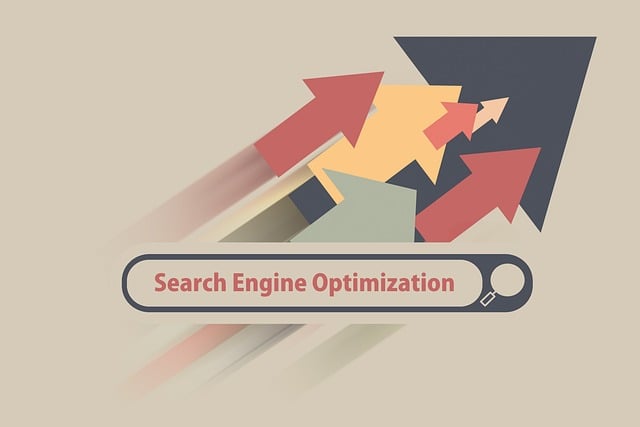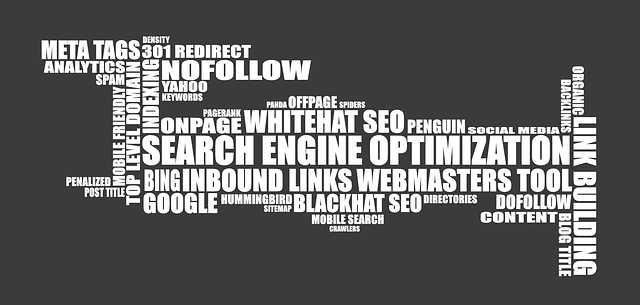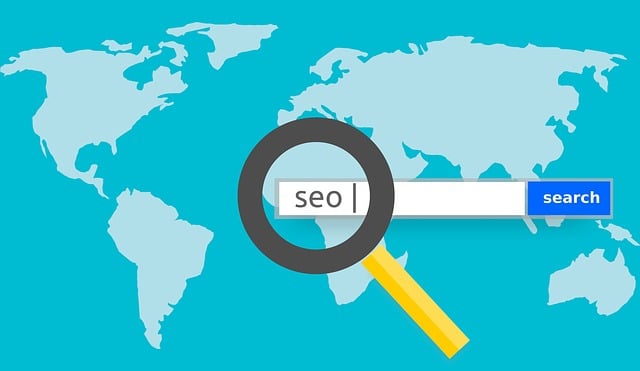Off-Page SEO is a strategic approach to boost website rankings by focusing on activities outside the site, primarily acquiring high-quality backlinks from authoritative sources. These backlinks serve as confidence signals to search engines, impacting a site's authority and relevance. Effective Off-Page SEO techniques include content creation, guest blogging, influencer outreach, and broken link building. The strategy aims to enhance online visibility, drive organic traffic, and improve overall search result rankings. By analyzing competitor backlinks and implementing diverse, natural link-building tactics, sites can improve their Off-Page SEO performance and domain authority. Monitoring KPIs like backlinks, domain authority, and page authority helps assess the success of these strategies.
In the dynamic realm of digital marketing, Off-Page SEO stands as a cornerstone strategy for boosting online visibility. This article delves into the intricate world of backlinks, exploring their pivotal role in search engine optimization (SEO). We’ll guide you through understanding off-page SEO fundamentals, highlighting why high-quality backlinks are indispensable. Discover effective strategies to build and acquire these powerful links, learn from competitor analysis, and steer clear of common pitfalls. Measure campaign success with insights into tracking off-page SEO performance.
Understanding Off-Page SEO: The Role of Backlinks

Off-Page SEO is a crucial component that focuses on activities outside your website to improve its search rankings. At its core, it revolves around building high-quality backlinks from reputable and relevant sources. These backlinks act as votes of confidence in the eyes of search engines, signaling that your content is valuable and trustworthy. The more quality backlinks you have, the higher your website’s authority and relevance become.
Search engines like Google use these backlinks to discover and crawl new web pages, assessing their worthiness for search results based on factors such as link quality, diversity of anchor text, and the overall reputation of the linking sites. Effective Off-Page SEO strategies involve earning natural backlinks through exceptional content creation, guest blogging, broken link building, and influencer outreach, among other methods. This approach not only enhances your website’s visibility but also drives organic traffic, ultimately boosting your online presence.
Why Backlinks Are Vital for Search Engine Optimization (SEO)

Backlinks, often referred to as inbound links or incoming links, are a crucial component of Off-Page SEO. They act as digital votes of confidence from one website to another, indicating to search engines that your content is valuable and worthy of reference. When high-quality websites link to yours, it signals to Google and other search engines that your site offers reliable and relevant information. This endorsement can significantly boost your site’s authority and visibility in search results.
The importance of backlinks cannot be overstated, as they play a pivotal role in shaping your online presence. Each backlink contributes to the overall profile of your domain, helping search algorithms understand the context and relevance of your website within the vast digital landscape. A well-diversified and high-quality backlink profile can enhance your site’s ranking for relevant keywords, drive organic traffic, and ultimately, increase conversions and user engagement.
Strategies to Build High-Quality Backlinks

Building high-quality backlinks is a cornerstone of successful Off-Page SEO strategies. It involves a thoughtful approach to earn genuine links from authoritative sources, enhancing your website’s reputation and visibility. One effective method is guest blogging on reputable industry blogs, where you can contribute valuable content while subtly promoting your own site. Another strategy is to engage in influencer outreach, building relationships with influencers who can mention or link back to your business organically.
Additionally, creating comprehensive resources like e-books or in-depth guides that naturally attract links from other websites is a powerful tactic. These resources provide immense value to users and bloggers alike, making them more inclined to link to your content. Leveraging social media platforms to share these valuable assets can also stimulate organic backlinks as users interact and share your content with their networks.
Analyzing Competitor Backlink Profiles: A Step-by-Step Guide

To begin analyzing your competitors’ backlink profiles as part of your Off-Page SEO strategy, start by identifying your key rivals in the search engine results pages (SERPs). Utilize tools like SEMrush or Ahrefs to uncover their domain and page-level backlinks. Next, categorize these backlinks based on their source: high-authority sites, relevant industry blogs, local business listings, and low-quality or spammy links. This step-by-step approach allows you to understand the quality and quantity of backlinks each competitor has built.
Once categorized, assess the anchor text diversity used by your competitors to gain links. A varied anchor text distribution indicates a more natural link profile. Examine the linking sites themselves—are they reputable sources? Analyze the content surrounding the backlinks to gauge their relevance to your industry or niche. This process will reveal valuable insights into what works for your competitors, helping you tailor strategies to improve your own Off-Page SEO performance.
Effective Ways to Reach Out and Acquire Backlinks

Acquiring backlinks is a vital component of successful Off-Page SEO strategies. One effective way to reach out and acquire backlinks is by identifying relevant, high-authority websites in your niche and establishing meaningful relationships with them. This can involve guest blogging, where you contribute valuable content to their site, or offering collaborations that benefit both parties. Another powerful approach is to create exceptional content that naturally attracts links from other sites. Infographics, in-depth how-to guides, and original research are particularly effective at enticing backlinks as they provide immense value to readers and media outlets alike.
Additionally, leveraging social media platforms can open doors to valuable backlinks. Engaging with influencers and industry leaders on these platforms can lead to opportunities for content promotion and sharing, indirectly driving backlinks to your site. Participatory initiatives like contests, polls, or community discussions can also attract attention from other websites looking to engage with a relevant audience, further enhancing your backlink profile.
Common Mistakes to Avoid in Link Building Efforts

In the realm of Off-Page SEO, link building is a strategic art; however, even seasoned professionals can fall victim to certain pitfalls. One common mistake is neglecting to diversify anchor texts. Using the same or similar text across multiple backlinks can trigger red flags in search engine algorithms, potentially leading to penalties. Each backlink should be unique and contextually relevant, reflecting a genuine connection between the source and the linked content.
Another blunder is focusing solely on quantity without regard for quality. While it’s tempting to aim for a vast network of links, their effectiveness diminishes when sourced from low-quality or irrelevant websites. Instead, strive for a balanced approach where you cultivate relationships with authoritative domains in your industry. This ensures that each link carries substantial weight and contributes positively to your site’s authority and search rankings.
Measuring the Success of Your Off-Page SEO Campaign

Measuring the success of your off-page SEO campaign is a crucial step in understanding its impact and making data-driven adjustments. Unlike on-page optimization, where analytics tools provide clear insights into traffic and keyword rankings, off-page metrics can be more abstract. However, by tracking key performance indicators (KPIs), you can assess the effectiveness of your outreach efforts. One primary KPI is the number of backlinks acquired; a steady increase in high-quality backlinks from reputable sources indicates successful off-page optimization.
Additionally, monitoring your domain authority and page authority is essential. These metrics, provided by tools like Moz or Ahrefs, reflect your website’s overall health and the strength of individual pages. A well-executed off-page SEO campaign should lead to a gradual rise in these authorities, demonstrating improved trust and credibility in the eyes of search engines. Moreover, analyzing referral traffic from external sources can provide valuable insights into which strategies are driving the most relevant visitors to your site.
